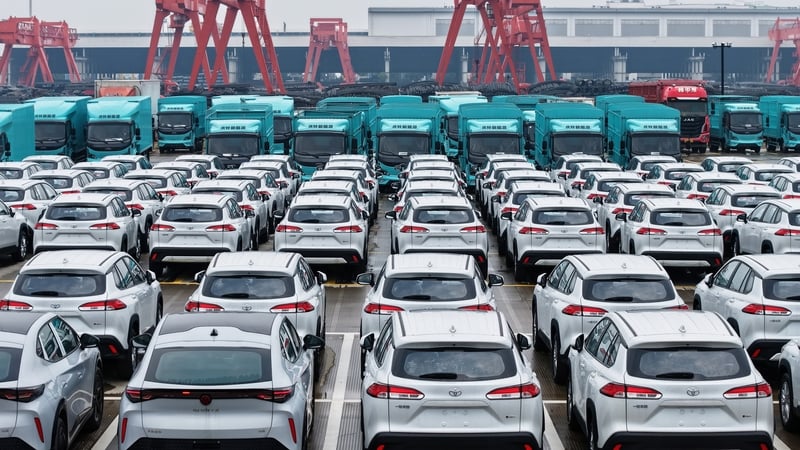Worries about throttled global trade and a hit to car industry profits sent shares of car makers tumbling and drove markets broadly weaker today after President Donald Trump put a wall of tariffs around the US auto sector.
Some $16.5 billion was wiped from transport stocks in Tokyo, according to LSEG data.
They also slid in South Korea, and Europe was braced to sell.
Toyota fell 2.7%, Honda 3% and Nissan .2%. Hyundai Motor and Kia in South Korea dropped about 4% each.
Volkswagen, Europe’s top car maker, is in the frame since 43% of its US sales are sourced from Mexico, S&P Global Mobility estimates, and even US marques were down in after-hours trade since their supply chains spread across North America.
The tariffs have been well flagged and so some of the losses were limited because of how much had already been priced in and because car ownership is so popular in the US that investors think consumers will eventually just keep buying.
But the signal – hurting allies and car buyers – was nevertheless unsettling for markets which have been slow to accept that the levies may become permanent fixtures and drive lasting changes in world trade flows.
The head of Germany’s car industry association said the tariffs are a “fatal signal” for global trade.
“It’s hard not to interpret this as anything but a cue for higher prices and lower growth,” said Prashant Newnaha, senior Asia-Pacific rates strategist at TD Securities in Singapore.
Trump said 25% tariffs on imported cars and light trucks would begin on April 3. Almost half of the 16 million cars sold in the US last year were imported, with a total value exceeding $330 billion, Goldman Sachs analysts said.
The investment bank’s analysts expect a hit to sales, before a gradual recovery.
But the damage would be enough to put Toyota, Honda, Nissan, Mazda Motor, Subaru and Mitsubishi Motors below market consensus profit estimates for the 2026 financial year – with Mazda taking the heaviest hit.
Mazda shares sank 6.1% today.
The new levies could add thousands of dollars to the cost of an average US vehicle purchase and impede production due to the intertwined manufacturing operations developed over decades by car makers across Canada, Mexico and the US.
In US after-hours trade, General Motors tumbled 6%, while shares in Ford F.N fell almost 5%.
Shares in Tesla slipped about 1%, drawing some support since the tariffs add to already punitive levies keeping Chinese electric vehicle makers mostly out of the US market.
BYD, which is leading an overseas push by Chinese automakers, said it has no plans to sell into Canada or the US but will grow global sales and build factories abroad.
Its shares rose 2.3% today for a 53% gain so far this year.
Earlier in March, Volkswagen said it was working on back-up plans for how its passenger car brand could tackle US tariffs on imports from Mexico, while BMW said it was preparing to absorb the cost.




